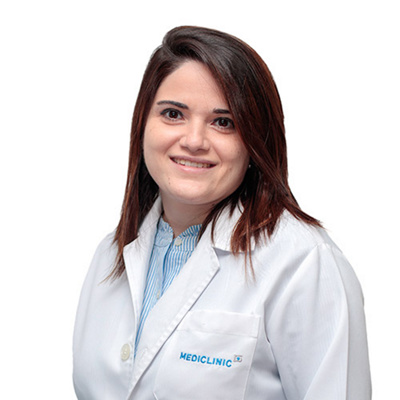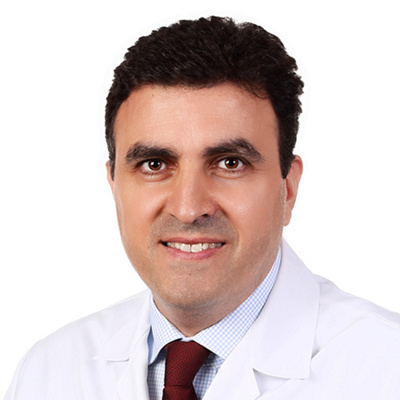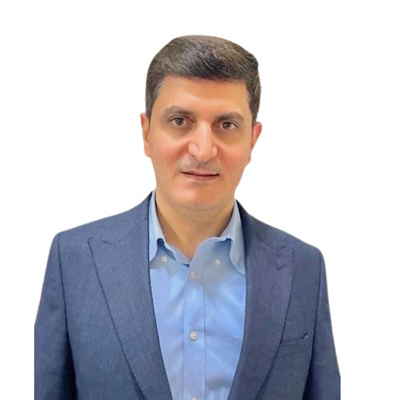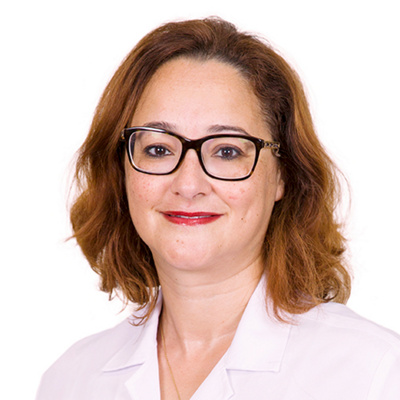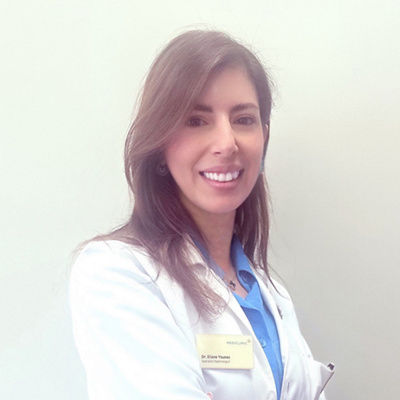Nephrology and Dialysis Services
Nephrology
Nephrology at Mediclinic City Hospital is led by a highly qualified multidisciplinary team including nephrologists, experienced nurses trained in the care of dialysis patients, dieticians, a vascular surgeon and other trained ancillary staff.
What Is a Nephrologist?
Nephrologists are doctors who specialise in kidney care. Nephrologists diagnose, treat and manage acute and chronic kidney problems and diseases.
A nephrologist will examine you, order blood work, take a urine sample, make a diagnosis and treat your condition with medication or with a procedure.
Nephrologists treat a large variety of disorders including:
- Diabetic nephropathy
- High blood pressure
- Chronic kidney disease
- End-stage renal disease patients on haemodialysis
- Chronic transplant care
- Pre-transplant workup for donors and recipients
- Glomerulonephritis, and autoimmune diseases such as lupus, in conjunction with rheumatology
- Kidney stone evaluation and programme (the nephrologist works in tandem with the urologist so that each episode of renal stones is treated as necessary. The main emphasis of this sub-speciality clinic is on the prevention and medical management of kidney stones)
- Electrolyte disorders
Consultative Nephrology
Patients with symptoms such as blood in urine, groin pain, burning sensation while passing urine, swelling in the legs or difficulty in passing urine should consult a nephrologist. Sometimes patients are referred to a nephrologist by primary care physicians for abnormalities detected in their urine, medical check-ups and laboratory investigations.
Hypertension Clinic
- In this special clinic, patients with high blood pressure are investigated and treated. The emphasis is on compliance with medications and work-up of patients so that treatable causes are detected early. A state-of-the-art blood pressure monitoring equipment is located in the unit.
- Our physicians work in collaboration with primary care physicians and cardiologists to diagnose white coat HTN masked HTN and secondary HTN using 24-hour ambulatory BP monitoring and various tests to diagnose reversible causes of HTN.
Dialysis Services
What is kidney or renal failure?
The word renal refers to the kidneys. If one or both kidneys fail completely and the damage cannot be reversed, the condition is called renal failure or end-stage renal disease (ESRD). When this occurs, your kidneys can no longer filter wastes well enough to keep you healthy. Treatments for kidney failure include dialysis and/or transplantation.
Why do kidneys fail?
Most kidney diseases attack the nephrons (tiny filtering units within the kidneys), causing them to lose their filtering capacity. Damage to the nephrons can happen quickly, often as the result of injury, underlying diseases, or poisoning. However, often the damage will only become apparent after many years.
What is the difference between chronic and acute kidney failure?
Chronic kidney disease, also called chronic kidney failure, describes the gradual loss of kidney function.
Your kidneys filter wastes and excess fluids from your blood, which are then excreted in your urine. When chronic kidney disease reaches an advanced stage, dangerous levels of fluid, electrolytes and wastes can build up in your body.
Treatment for chronic kidney disease focuses on slowing the progression of the kidney damage, usually by controlling the underlying cause. Chronic kidney disease can progress to end-stage kidney failure, which is fatal without artificial filtering (dialysis) or a kidney transplant.
Acute kidney failure occurs when your kidneys suddenly become unable to filter waste products from your blood.
When your kidneys lose their filtering ability, dangerous levels of wastes may accumulate, and your blood’s chemical makeup may get out of balance.
Acute kidney failure can be fatal and requires intensive treatment. However, acute kidney failure may be reversible. If you’re otherwise in good health, you may recover normal or nearly normal kidney function.
What are my treatment options?
When the kidneys are no longer working effectively, waste products and fluid buildup in the blood.
- Dialysis treatments may be used for patients who have become ill and have acute renal failure (temporary loss of kidney function), or for fairly stable patients who have permanently lost kidney function (stage 5 chronic kidney disease).
- Kidney transplantation
2 Main Types of Dialysis:
Haemodialysis
A medical procedure to remove excess fluid and waste products from the blood and to correct electrolyte imbalances. This is accomplished using a machine and a dialyser, also referred to as an artificial kidney.
Peritoneal Dialysis
Use the lining of your abdominal cavity (the space in your body that holds organs like the stomach, intestines, and liver) to filter your blood. This kind of dialysis is needed daily hence the name of this treatment – continuous ambulatory peritoneal dialysis and criteria needs to be closely discussed together with your doctor.
What are the types of dialysis access?
Dialysis treatments can only be administered by means of creating or inserting a specialised access to your blood circulatory system. A dialysis access is a critical factor in enabling you to obtain the best dialysis treatment possible. Having an understanding of the four types of dialysis accesses will help you and your nephrologist (a kidney specialist) determine which type of dialysis access is right for you.
Types of Dialysis Access
The four different types of dialysis access used for hemodialysis, a process in which blood is transported from your body for cleaning are:
- Central venous catheter (CVC)
- Arteriovenous fistula (AV Fistula)
- Arteriovenous graft (AV Graft)
- Peritoneal dialysis catheter (PD Catheter)
How does dialysis work?
Blood travels through dialysis blood lines to the dialyser, also known as the artificial kidney. The dialyser is made up of two compartments, blood and dialysate. Porous membranes inside the dialyser allow for the movement of waste products, electrolytes and water between compartments through a process of osmosis and diffusion. These exchanges continue over the prescribed dialysis session until a balance of electrolytes and effective removal of waste products is achieved.
What arrangements need to be made to receive chronic dialysis?
- Doctor consultation
- Medication prescription from treating doctor
- Medical insurance approval or private funding
- Appointment with nephrologist for a dialysis prescription
- Book a dialysis time slot
Who are the main treatment team members during my dialysis journey?
- Nephrologists
A Nephrologist is a kidney specialist that diagnoses and treats kidney disorders. These specialists will regularly check in on patients like you to make sure you are receiving the care you need. - Dialysis nurses
Also known as nephrology nurses, dialysis nurses are responsible for reviewing physician orders for dialysis patients, collects pre-treatment dialysis data, and reviews patient records prior to dialysis. Conducts pre-dialysis patient assessment including obtaining patient vital signs and assessing the patient's vascular access, laboratory findings, and the patient' s general health. - Unit manager
A Unit Manager is a key support person in the dialysis unit and will work with your doctors and the dialysis unit staff to accommodate your needs - Transplant coordinator
A Transplant coordinator ordinates the evaluation and preparation of patients for organ transplantation and long-term management of patients after transplant.
What we offer:
At Mediclinic City Hospital we offer haemodialysis. With eight state-of-the-art machines, our unit is designed to handle the care of chronic ESRD patients as well as those with acute kidney failure requiring dialysis. With the unique advantage of being within the hospital, this outpatient unit allows for the care of frail patients that require careful assessment by both the on staff nephrologist, and often other subspecialists, in order to provide seamless care.
Our services include:
- Daily rounds by our in house team of nephrologists
- Monthly multidisciplinary team review
- On site dietitian consultation
- Regular patient education regarding management of fluid, electrolyte and nutritional issues
- Yearly evaluation and appropriate referral for kidney transplantation
Equipment:
- Fresenius 5008 series and 4008H series
- Gambro AK 200 Ultra S
- Fresenius CRRT machine for plasma exchange and continuous renal dialysis treatment for unstable and critically ill patients, located in I.C.U
Operating hours:
- Saturday – Thursday: 7am – 10pm
- Emergency dialysis services are available daily from 10pm-7am.
FAQs:
How do I choose between haemodialysis and peritoneal dialysis?
Treatment selection will be discussed during consultation together with your nephrologist. The option selected will be in your best interest and considerations to working hours, travel and lifestyle will be considered. Very specific criteria for selection of either treatment needs to be considered and your nephrologist will support you through this treatment selection.
Is a renal diet important whilst undergoing dialysis treatments?
As kidney function declines, protein waste and minerals become more difficult for the kidney to remove. The main nutrients limited in kidney diets include protein, phosphorus, potassium and sodium.
Not only will a good diet help you feel healthy, it can also help you avoid complications such as fluid overload, high blood potassium, bone disease, and weight loss. Keeping close track of your diet can also help you control other diseases such as diabetes and high blood pressure. Uncontrolled blood pressure and diabetes can worsen kidney disease and diminish any residual kidney function.
What about infection control?
It is very important that you follow the unit’s strict hand washing and infection control programme. This will ensure the health of yourself, your families and other fellow dialysis patients.
Any unusual redness or pain around your vascular access site must be noted together with your dialysis nurse.
Mediclinic facilities that offer dialysis treatments:
Mediclinic Al Tawar
Mediclinic Al Barsha
Mediclinic City Hospital
Mediclinic Parkview Hospital



